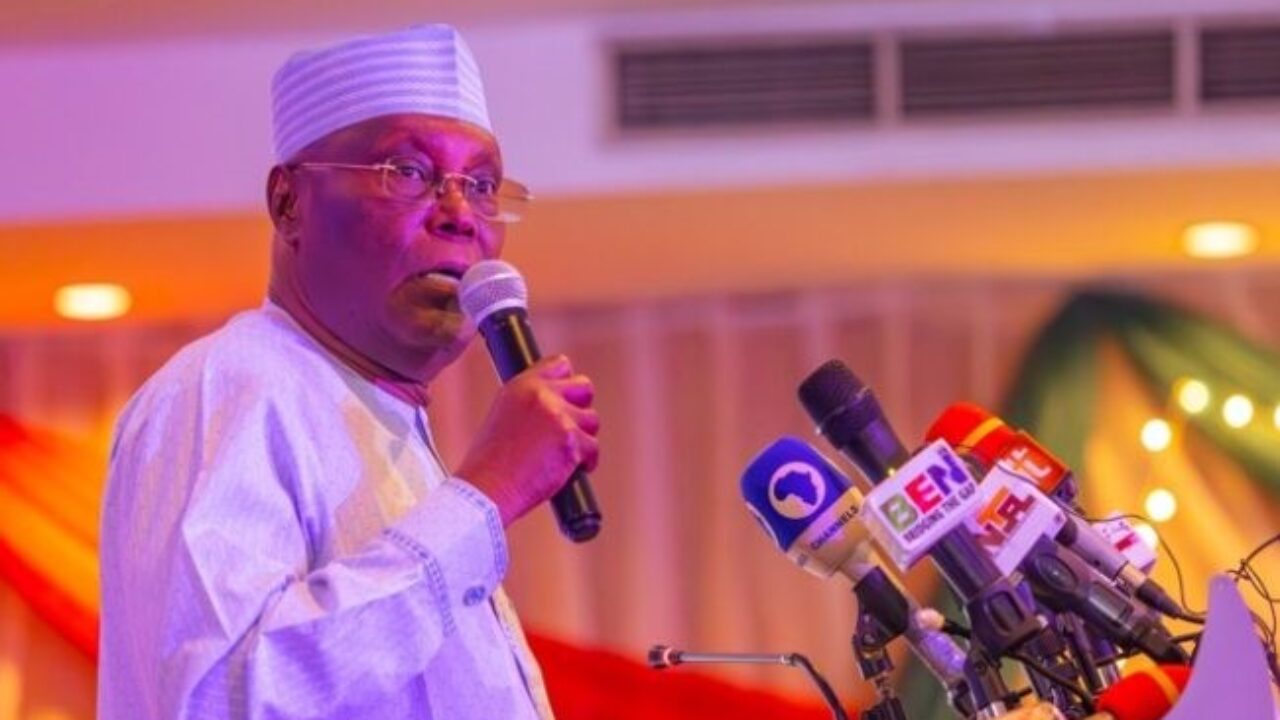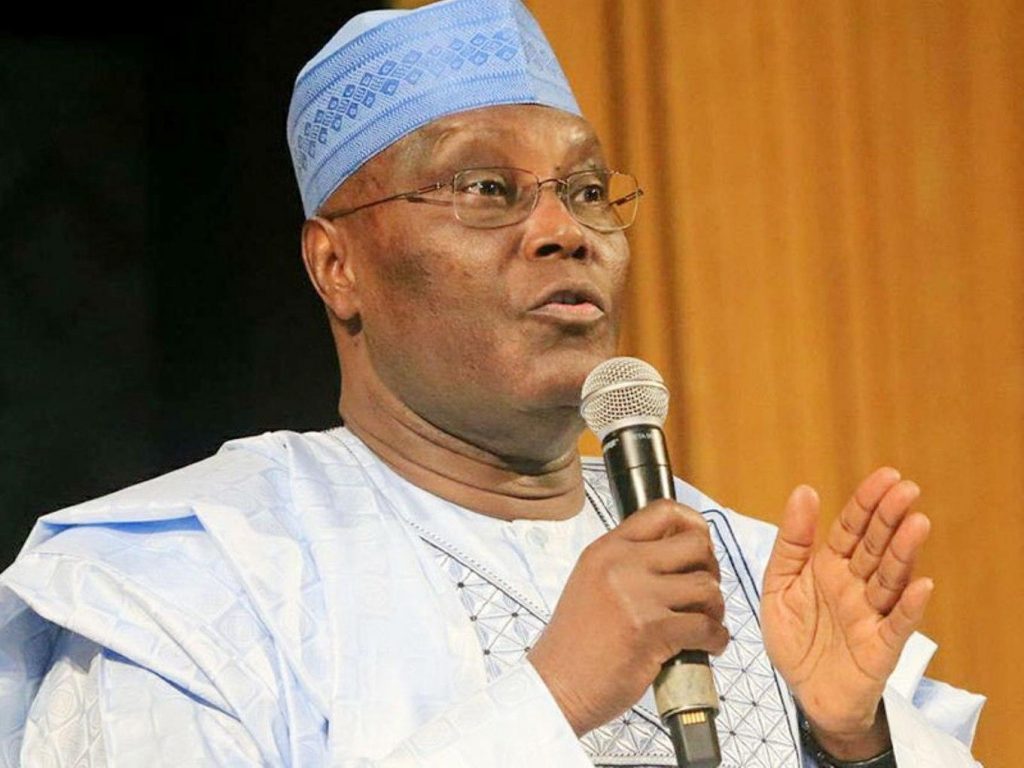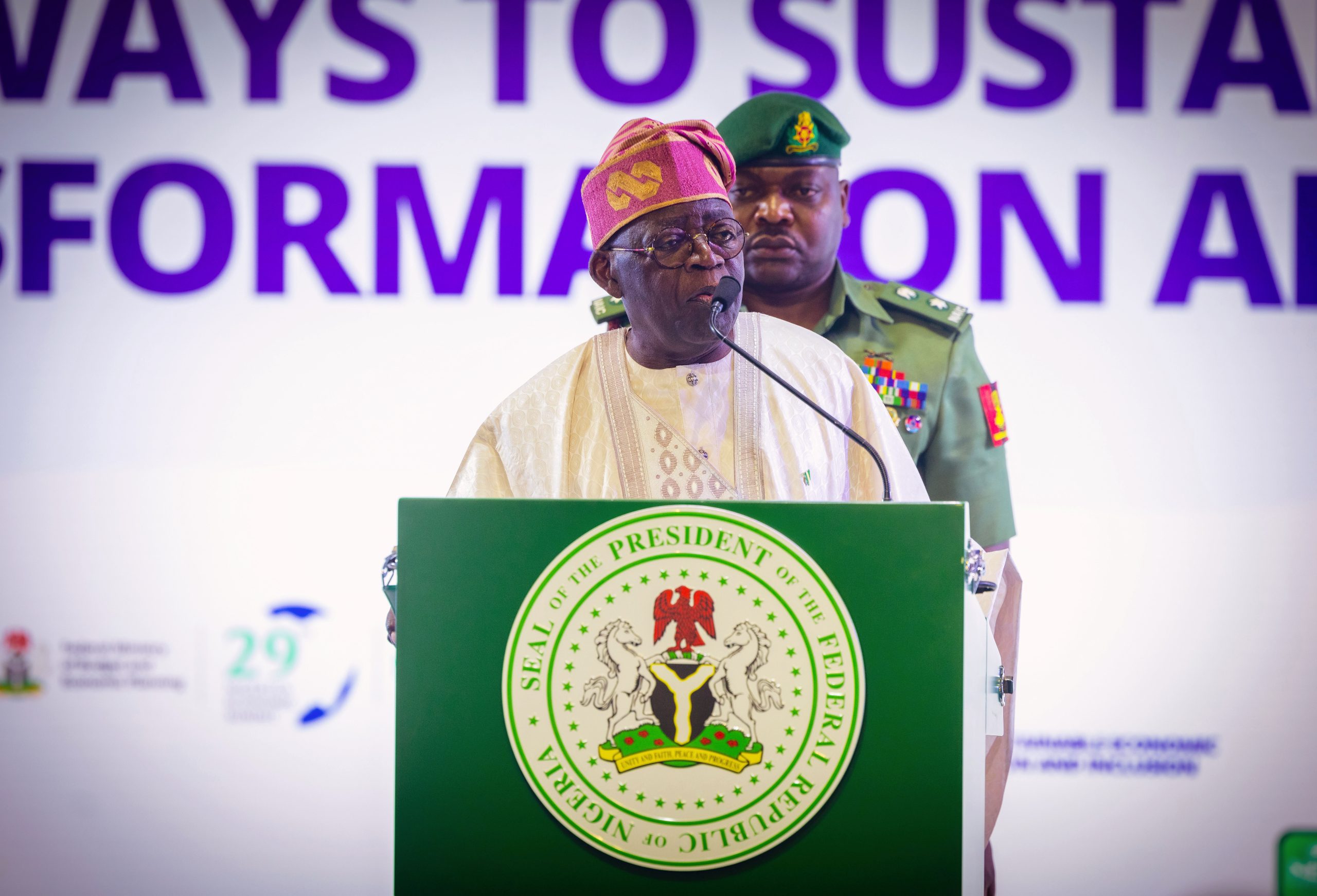Politics
Osun: Tribunal chairman mocked Adeleke’s dancing while delivering judgement – PDP alleges
Osun State governorship election Tribunal appears to have taken a swipe at the dancing skills of Governor Ademola Adeleke.
Chairman of the Election Petition Tribunal, Terste Kume, on Friday, during his judgement mocked Governor Adeleke for dancing to Kiss Daniel’s “Buga” song the day he was declared winner of the election last year.
Delivering judgement, two out of the tribunal’s three-member panel held that the petitioner was able to prove that there was indeed overvoting in some of the polling units.
Consequently, the majority judgment of the tribunal ordered the Independent National Electoral Commission, INEC, to withdraw the certificate of return from Adeleke and issue a fresh one to Oyetola as the duly elected governor of the state.
The judge said Adeleke was dancing to Kiss Daniel’s “Buga” song after he was declared winner of the governorship election in July 2022, maintaining that the election was not held in compliance with the electoral act.
”After deducting the unlawful votes, Mr Oyetola’s tally came down to 314, 931 votes while Mr Adeleke scored 290,666. The declaration and return are hereby declared null and void,” the chairman had ruled.
Reacting to this in Osogbo on Saturday while addressing the newsmen, the party leadership led by the State Caretaker Chairman, Dr Adekunle Akindele, said the judge abandoned legal arguments and submissions to dwell on the trivial as the foundation for his pronouncement.
Politics
2027: APC vows to retake Adamawa as reconciliation committee meets state, LG executives

The All Progressives Congress, APC, has taken a major step towards resolving differences among members in Adamawa State.
A resolution committee assembled by the national headquarters of the party met with officials of the party in Adamawa State on Monday as a first interactive step to achieve harmony within the party.
The APC which produced the Adamawa State Governor in 2015, failed in its return bid in 2019 and failed again in 2023 to get back to power.
The party which lost narrowly in each case and blamed it on intraparty rancour, noticed the same sort of lingering rancour after the 2023 election, hence the decision to set up a reconciliation committee.
The committee began its meeting with party officials Monday afternoon telling the officials to see victory in 2027 as a reality that they must achieve.
The committee which is under the leadership of Senator Mohammed Mana, who represented Adamawa North District in 2007-2011, has Isa Baba as Secretary and erstwhile senators Abubakar Halilu Girei, Bello Tukur and Binta Garba as well as Mrs Bridget Zidon, Martins Babale and Yusuf Yakub as members.
In his opening remarks during the meeting at the APC state secretariat in Yola, the chairman of the committee, Muhammed Mana, said the APC is a grassroots political party and mending fences will enable it to wax stronger and take power from the ruling party in the state, the Peoples Democratic Party, PDP.
He commended the National Security Adviser, NSA, Malam Nuhu Ribadu who is the party leader in the state for striving towards ensuring that the aggrieved members of the party are reconciled so that the party can regain its lost glory in the state.
In his welcome address, the Chairman of the party in the state, Idris Shuaibu, expressed optimism that the reconciliation will enable the party win the 2027 governorship election.
Politics
LG chairmen suspension: PDP warns of imminent crisis as Edo Govt counters AGF

The brewing constitutional crisis in Edo State over the suspension of all the 18 local government area chairmen won’t end any time soon.
This is as officials of the state government have declared that the chairmen remain suspended.
The Peoples Democratic Party, PDP, has warned of an imminent break down of law and order should the state government refuse to back down.
The PDP spoke on Monday through its chieftain, Hon. Ose Anenih described the unfolding events as “a shocking rebellion against the rule of law and the President’s authority.”
The government’s stand comes despite the declaration of the suspension as illegal by both the Attorney General of the Federation, Mr Lateef Fagbemi, a Senior Advocate of Nigeria, SAN, and a High Court sitting in Edo State.
The AGF recently reaffirmed that only local councillors, not governors or state assemblies hold the constitutional authority to suspend or remove elected local government officials.
Similarly, Justice Efe Ikponmwonba of the Edo High Court issued a mandatory injunction on Friday, declaring the suspension null and void and restraining the state government and other parties from meddling in local government operations until the substantive case is heard.
However, state officials have disregarded this ruling, signaling what appears a direct challenge to law officer of federation and disobedience to court order.
Barrister Andrew Emwanta, a member of the governor’s administrative panel, while appearing on national television, declared that “the Constitution has placed local governments under state control, and that remains the law.”
He added that, “Financial autonomy is about giving them access; but that does not mean state governments do not have control over how they use that money.
“The Supreme Court cannot amend the constitution.”
In a similar vein, Kassim Afegbua, another panel member, also countered the AGF.
He had this to say when he appeared on Arise TV: “Lateef Fagbemi might be the law officer of the federation, but he does not represent the constitution of the country and he does not represent other laws made validly under the provisions of the constitution by the Edo House of Assembly.”
The governor’s spokesperson, Fred Itua, was also quoted to have said that “The decisions by the Edo State House of Assembly, vis-a-vis, the Governor of the State, Senator Monday Okpebholo, are entirely justified.
“It is essential to note that the apex Court is both a court of law and a policy court, and while it has the power to make policy decisions, it cannot exercise this power when the Constitution is clear on a matter.
“The House of Assembly has the powers to oversight the activities of the Governor, and similarly, the Governor has the right to exercise oversight over local government chairmen.
“The current constitutional construct recognizes a two-tier federal design. It is clearly stipulated in the Constitution.”
Reacting to the government’s stand, Anenih described the unfolding events as “a shocking rebellion against the rule of law and the President’s authority.”
Politics
2025 budget cannot address Nigeria’s economic challenges – Atiku

The presidential candidate of the Peoples Democratic Party in the 2023 election, Atiku Abubakar, has stated that the 2025 budget proposal lacks the structural and fiscal discipline needed to address Nigeria’s multifaceted economic challenges.
The former vice president made this disclosure in a statement on Sunday, reacting to the 2025 budget proposal.
Recall that President Bola Ahmed Tinubu last week presented a N49.7 trillion 2025 budget to the National Assembly. The President had based the budget on key economic assumptions, including a N36.36 trillion revenue target, inflation reduction to 15.75 per cent, an exchange rate of N1,500 per dollar, oil production at 2.06 million barrels per day, a crude oil price of $70 per barrel, and a N13.39 trillion budget deficit.
Reacting to the budget, Atiku stated that it reflects a continuation of business-as-usual fiscal practices where budgets fail to impact the lives of citizens.
According to him, the 2025 budget’s ability to foster sustainable economic growth and tackle Nigeria’s deep-rooted challenges is questionable.
Atiku also criticised the budget’s reliance on N13 trillion in borrowing to fund the deficit.
“Weak Budgetary Foundations: The 2024 budget’s underperformance signals poor budget execution. By Q3 of the fiscal year, less than 35 per cent of the allocated capital expenditure for MDAs had been disbursed, despite claims of 85 per cent budget execution. This underperformance in capital spending, crucial for fostering economic transformation, raises concerns about the execution of the 2025 budget.
“Disproportionate Debt Servicing: Debt servicing, which accounts for N15.8 trillion (33 per cent of the total expenditure), is nearly equal to the planned capital expenditure (N16 trillion, or 34 per cent). Moreover, debt servicing surpasses spending on key priority sectors such as defence (N4.91 trillion), infrastructure (N4.06 trillion), education (N3.52 trillion), and health (N2.4 trillion). This imbalance will likely crowd out essential investments and perpetuate a cycle of increasing borrowing and debt accumulation, undermining fiscal stability.
“Unsustainable Government Expenditure: The government’s recurrent expenditure remains disproportionately high, with over N14 trillion (30 per cent of the budget) allocated to operating an oversized bureaucracy and supporting inefficient public enterprises. The lack of concrete steps to curb wastage and enhance the efficiency of public spending exacerbates fiscal challenges, leaving limited resources for development.
“Insufficient Capital Investment: After accounting for debt servicing and recurrent expenditure, the remaining allocation for capital spending—ranging from 25 per cent to 34 per cent of the total budget—is insufficient to address Nigeria’s infrastructure deficit and stimulate growth. This amounts to an average capital allocation of approximately N80,000 (US$45) per capita, which is insufficient to meet the demands of a nation grappling with slow growth and infrastructural underdevelopment.
“Regressive Taxation and Economic Strain: The administration’s decision to increase the VAT rate from 7.5 per cent to 10 per cent is a retrogressive measure that will exacerbate the cost-of-living crisis and impede economic growth. By imposing additional tax burdens on an already struggling populace while failing to address governance inefficiencies, the government risks stifling domestic consumption and further deepening economic hardship.
“The 2025 budget lacks the structural reforms and fiscal discipline required to address Nigeria’s multifaceted economic challenges. To enhance the budget’s credibility, the administration must prioritise the reduction of inefficiencies in government operations, tackle contract inflation, and focus on long-term fiscal sustainability rather than perpetuating unsustainable borrowing and recurrent spending patterns. A shift toward a more disciplined and growth-oriented fiscal policy is essential for the nation’s economic recovery,” he stated.
-

 Sports5 days ago
Sports5 days agoFIFA Intercontinental Cup: Ancelotti becomes Real Madrid’s most successful manager
-

 Business1 week ago
Business1 week agoNB Plc appoints Juliet Anammah as substantive Board Chair
-

 News4 days ago
News4 days agoAtiku reacts to hacking of NBS website
-

 News4 days ago
News4 days agoWar in Ukraine has made Russia stronger – Putin
-

 Sports7 days ago
Sports7 days agoFull list of CAF Awards 2024 winners
-

 Business1 week ago
Business1 week agoConnect Nigeria Unwraps Exclusive Business Deals This Christmas – The Gift That Keeps On Giving!
-
Business1 week ago
Port Harcourt Refinery’s restart crucial to Nigeria’s energy sufficiency – NNPC
-

 Business1 day ago
Business1 day agoFuel to sell N935 per litre nationwide from Monday – IPMAN



